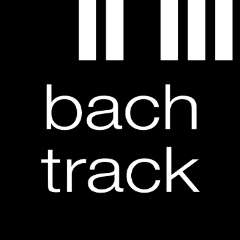The Haydn remembrance celebrations in the Esterhazy Palace & Bergkirche in Eisenstadt, Austria and the Summer Palace of Esterhaz in Fertod, Hungary were memorable. The concerts started on Friday evening with the four "Four Horn" symphonies, numbers 72, 13, 31 & 39, played in the Haydn Saal of the Esterhazy Palace where Haydn was Music Director from 1766 to 1795. These were so called because they require four horns instead of the usual two. The Freiburger Baroque Orchestra is a superb chamber orchestra of 24 players (so typical of Haydn’s days) playing period instruments led by the first violinist, Petra Müllejans, leading with her instrument as Haydn would have done in his day. Three of these symphonies are in major keys as are the majority of his symphonies and the last they played was no 39 in G minor, Haydn’s first in a minor key. The playing was superb, dynamic and captivating as one imagined Haydn himself conducting these for the first time in this very room.
Saturday night was titled “Positively and Hopefully” with the Academy of Ancient Music, 23 musicians under Paul Goodwin playing four more symphonies from Haydn’s middle years at Eisenstadt, numbers 30, 49, 26 & 44, but this time only one in a major key. By comparison the playing was more controlled and precise although not quite as emotionally charged as the previous evening.
Sunday remembrance began at midnight on Saturday in the Bergkirche, where Haydn is buried, with a concert of readings and music titled dramatically “Heaven & Haydn” in the hour of death. Haydn had died at his house in Vienna at 00.45 on 31 May 1809. After some Purcell and Haydn and some readings, the bell tolled at precisely 00.45 to mark the passing of the great man 200 years ago. You could have heard a pin drop in the church and then came some discordant modern music by Olga Neuwirth for solo trumpet which seemed somehow incongruous and unworthy of Papa Haydn. The concert closed at 01.00 with a charming Haydn motet Libera me. Next morning was the Haydn Creation Mass in the Bergkirche which was televised but it was impossible to get into the small church which was full of local dignitaries and guests.
The highlight of the weekend was a performance of The Creation in the Haydn Saal by the Austro-Hungarian Haydn Orchetra & Vienna Chamber Choir under Adam Fischer. The soloists were Annette Dasch, soprano, Christoph Strehl, tenor and Thomas Quasthoff, bass, all of whom were outstanding. The orchestra was enlarged to 50 players, including timpani and trumpets, and the choir of 48 young singers were powerful for this relatively small concert hall with such perfect acoustics. This was a big sound for Haydn’s day but he undoubtedly intended this to be big. Haydn was inspired to write The Creation after hearing Handel’s Messiah during his first visit to London in 1791. The opening overture was a huge innovation for Haydn depicting chaos by withholding cadences from the end of phrases. The performance was stunning and, unusually, sung without an interval in just under two hours, which made it even more compelling as it built up to a wonderful climax. The soloists were perfectly chosen and balanced, particularly in the wonderful duet between Adam and Eve in the third part which was exquisite. It was a performance well worthy of Papa Haydn; he would have loved it and been proud.
The weekend finished with a special Gala Concert at the Summer Palace of Esterhaz at Fertod in Hungary given by the Austro-Hungarian Haydn Orchestra under Adam Fischer in the small concert hall in which Haydn performed every summer. The orchestra was scaled down to 23 players starting with Symphony no. 49 in F minor "La passione", followed by the concert aria "Scena di Berenice" sung powerfully by the soprano Andrea Melàth. The finale was Symphony no. 45 in F# minor "Farewell" played in the very hall where Haydn performed it for the first time to tell Prince Esterhazy that he and his musicians wanted to go home to Eisenstadt after a long, hot summer away from their families. Today’s Prince Esterhazy was sitting in the row in front of me as the musicians departed one by one through the last movement until only two violins were left. The performance was superb and it doesn’t come more authentic or better than it did that evening. Afterwards the Prince invited everyone downstairs for a glass of Sekt followed by fireworks in the gardens. A fitting end to a memorable weekend of wonderful music in the original settings. Papa Haydn would have been proud.
Derek Bryan Chalfont St Peter 29th – 31st May 2009


